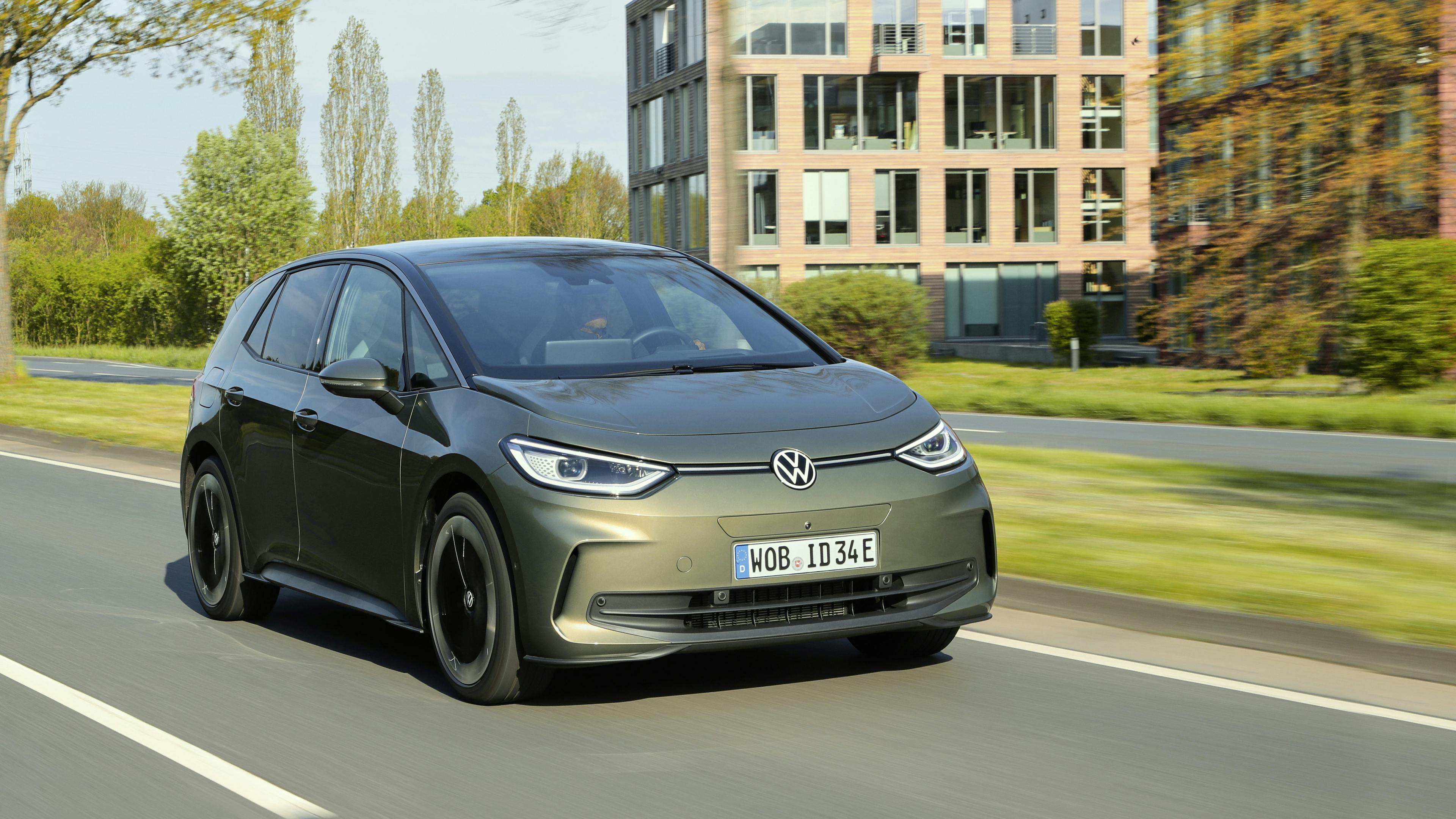Will vehicle tax have to be paid for e-cars in 2024?
The motor vehicle tax or motor vehicle tax in Germany is a tax on the operation of motor vehicles that are registered for use on public roads. With the tax, the state is pursuing several goals: It contributes to the financing of public infrastructure – especially road infrastructure – and is intended to promote the switch to more environmentally friendly mobility.
This is because, in addition to the type of drive, first registration and engine capacity, the amount of vehicle tax for combustion engines also depends on CO₂ emissions. In the Climate Action Programme 2030, the German government has decided to align the motor vehicle tax even more closely with CO₂ emissions: Since the 2021 reform, vehicles with high CO₂ emissions have been taxed gradually higher than more climate-friendly vehicles. There are a total of six levels, with tax rates ranging from two to four euros per gram of CO₂ per kilometer. An exemption limit of 95 grams of CO₂ per kilometre continues to apply, up to which no tax is levied.
However, pure electric vehicles have neither displacement nor do they emit CO₂ when driving. Will a vehicle tax be levied on e-cars at all? And if so, how is it calculated?
The most important things at a glance
- The motor vehicle tax is levied on motor vehicles that are registered for use on public roads.
- Pure electric vehicles are exempt from motor vehicle tax – but only until 31 December 2030 at the latest.
- After the tax exemption expires, the vehicle tax for e-cars is calculated on the basis of the permissible total mass.
- But even then, the annual vehicle tax for e-cars will be significantly lower than for comparable combustion engines.
Are e-cars exempt from vehicle tax?
E-vehicles of all vehicle classes that were registered for the first time between 18 May 2011 and 31 December 2025 are completely exempt from motor vehicle tax for up to ten years. First registrations before May 18, 2011 were only exempt from tax for five years. The first generation of electric cars has been asked to pay since 2016.
If an e-vehicle changes hands within the ten-year period, the new owner is granted exemption from motor vehicle tax for the remaining period since first registration.
However, this tax exemption for electric vehicles ends on December 31, 2030. Current buyers of electric cars can therefore no longer take full advantage of the entire ten-year period.

Are there any tax benefits for hybrid vehicles?
Hybrid cars, i.e. full hybrids and plug-in hybrids, are not exempt from vehicle tax. When calculating the vehicle tax for hybrid cars, as with pure combustion engines, the engine capacity and CO₂ emissions are decisive. However, the vehicle tax for hybrids is more favourable than for comparable combustion vehicles, as their CO₂ emissions are usually lower according to the test standard.
Hybrid vehicles also benefit from the annual tax-free allowance: If CO₂ emissions fall below the exemption limit of 95 grams of CO₂ per kilometre, only the engine capacity is used to calculate the vehicle tax. A tax-free allowance of 30 euros applies to this. In this case, car owners have so far only had to pay the amount exceeding 30 euros. But this relief only applies to vehicles that are newly registered by the end of 2024 - and then until the end of 2025 at the latest.
How is the vehicle tax for e-cars calculated?
After the end of the ten years, or after December 31, 2030 at the latest, the vehicle tax for e-cars up to a maximum of 3.5 tons will be calculated according to the permissible total weight. The tax rates are set out in Section 9 (2) of the Motor Vehicle Tax Act (KraftStG):
- Total weight up to 2,000 kilograms: 5,625 euros per 200 kilograms
- Total weight up to 3,000 kilograms: 6.01 euros per 200 kilograms
- Total weight up to 3,500 kilograms: 6.39 euros per 200 kilograms
The amounts always apply per 200 kilograms or part thereof.
Motor vehicle tax cheaper for e-cars than for combustion engines
For pure electric vehicles, only 50 percent of the usual tax rate is levied, which would be due for other vehicles up to a permissible total weight of 3,500 kilograms. For e-cars, the vehicle tax is therefore usually cheaper than for a comparable combustion engine.
Example 1:For a BMW i3 with a gross vehicle weight of 1,710 kilograms, the motor vehicle tax would be 51 euros per year:
1,710 kilograms / 200 = 8.55, rounded 9
9 * 5,625 euros ≈ 51 euros
Example 2: For a VW ID.3 Pro with a permissible total weight of 2,280 kilograms, the motor vehicle tax would be 72 euros per year:
2,280 kilograms / 200 = 11.4, rounded 12
12 * 6.01 euros ≈ 72 euros

Comparison: Motor vehicle tax for electric cars vs. combustion engines
While in the case of a combustion engine, engine capacity and CO₂ emissions are primarily taken into account for vehicle tax, these factors are eliminated in electric vehicles – they neither have a displacement nor emit CO₂ when driving. In the case of purely electric cars, the motor vehicle tax is only calculated according to the permissible total weight (GVW) of the vehicle.
In the case of combustion engines, only those CO₂ emissions above an exemption limit of 95 g/km are taken into account in the calculation. For vehicles below this threshold, the vehicle tax will be reduced by 30 euros. However, this regulation only applies to vehicles newly registered by the end of 2024 and ends in 2025. After that, the tax is due in the normal amount, without an allowance.
Example: Comparison of electric, gasoline and diesel engine vehicle tax
| Model | Engine type | Ab. Total weight (kg) | Displacement (cc) | CO₂ emissions (g/km) | Annual vehicle tax |
|---|---|---|---|---|---|
| VW ID.3 Pro | Electric | 2.280 | - | 0 | 72 Euro* |
| VW Golf 1.5 eTSI Life DSG | Otto | 1.880 | 1.498 | 130 | 102 Euro** |
| VW Golf 2.0 TDI SCR Life DSG | Diesel | 2.060 | 1.968 | 119 | 238 Euro** |
* Eleven years after first registration or no later than January 1, 2031.
** First registration after 1 January 2021; Values calculated with the motor vehicle tax calculator of the Federal Ministry of Finance according to the legal provisions 2024. Motor vehicle tax is expected to be higher in 2031.
What other tax advantages are there for electric cars?
To promote electric mobility, the government has introduced tax breaks for the private use of electric company cars and plug-in hybrids. In contrast to vehicles with combustion engines, only half the list price is applied for the taxation of the non-cash benefit. Employees therefore only have to pay tax on 0.5 percent of the gross list price as a monthly non-cash benefit.
This benefit applies to electric vehicles purchased or leased during the eligibility period between January 1, 2019 and December 31, 2030.
Condition: For hybrid vehicles, CO₂ emissions must not exceed 50 grams per kilometer or the vehicle must reach a certain minimum range if the electric drive is used exclusively. This is either 40 kilometres (2019 to 2021), 60 kilometres (2022 to 2024) or 80 kilometres (2025 to 2030), depending on the time the vehicle is made available.
For company cars without CO₂ emissions, i.e. pure electric cars, there has been a special discount since 2020: If the gross list price is less than 70,000 euros, only a quarter of the list price is considered a non-cash benefit (i.e. 0.25 percent). This new limit has been in force since 1 January 2024, previously the limit was 60,000 euros and until 2020 it was 40,000 euros.
Conclusion: Is the vehicle tax an advantage for electric cars?
With regard to vehicle tax, pure electric vehicles have a clear tax advantage. They are exempt from motor vehicle tax for up to ten years, but no later than 31 December 2030. And even after the tax exemption expires, the motor vehicle tax will be cheaper than for comparable combustion engines: For electric vehicles, only 50 percent of the usual tax rate will be levied, which would be due for a permissible total weight of up to 3,500 kilograms. This significantly reduces the operating costs of electric vehicles compared to gasoline and diesel vehicles.
The example shows that even if the tax-free period for electric vehicles is over by 2031 at the latest, the vehicle tax for e-cars is usually cheaper than for a comparable combustion engine.
source : Road tax for e-cars: We show you how to save taxes in 2024 |mobile.de
